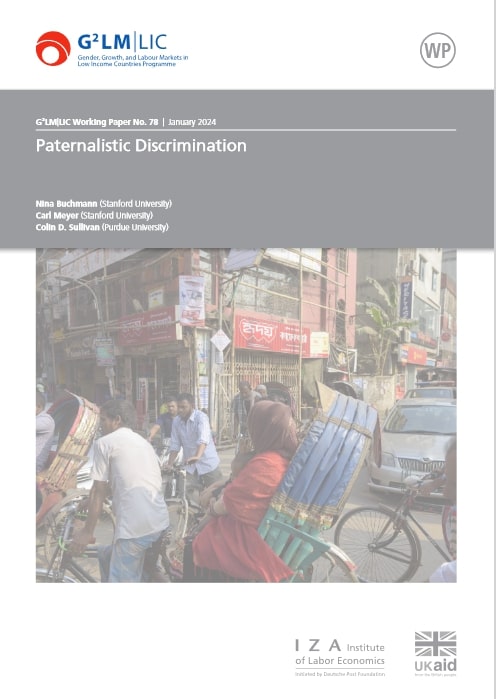We combine two field experiments in Bangladesh with a structural labor model to introduce paternalistic discrimination, the differential treatment of two groups to protect one group from harmful or unpleasant situations. We observe real hiring and application decisions for a night-shift job that provides safe worker transport home at the end of the shift. In the first experiment, we vary employers’ perceptions of job costs to women by experimentally varying information about the transport while holding taste-based and statistical discrimination constant. We find that employers discriminate paternalistically: Not informing employers about the transport decreases demand for female labor by 22%, and has a larger effect on hiring than informing employers that workers receive a surprise cash payment large enough to purchase safe transport themselves. In the second experiment, not informing applicants about the transport reduces the female labor supply by 15%. In structural simulations that combine the results of both experiments, eliminating paternalistic discrimination reduces the simulated gender employment gap by 24% and increases female wages by 21%.
